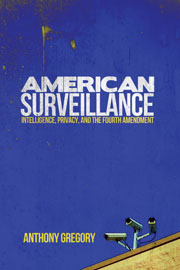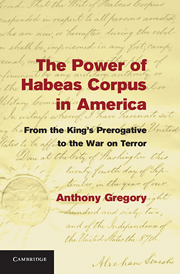Eric Holder’s Justice Department has predictably decided to shield him from prosecution in response to the House of Representatives holding him in contempt. It is the latest chapter in a drama starring a stonewalling attorney general, a president claiming executive privilege, and a bizarre scandal in which the Bureau of Alcohol, Tobacco, Firearms and Explosives armed Mexican drug cartels, presumably to trace the weapons but instead losing track of almost all of them. It is not the first time the U.S. government has armed its nominal enemies, but the “Fast and Furious” debacle should ignite an entire national debate on America’s national law enforcement apparatus and the war on drugs. Too bad this is very unlikely. More fundamentally, the whole affair reminds us that high federal officials regard themselves as above the law.
Those who see Congress’ move as a partisan fishing expedition have a narrowly valid point. It is not that Holder and the Obama administration deserve less scrutiny than they are enduring—far from it. But conservatives did sing a different tune when their own party was mired in disturbing scandals. If only Democrats under George W. Bush had exercised more fortitude in holding that administration’s feet to the fire.
The entire sorry spectacle should prompt a serious question: Why was Eric Holder the first sitting U.S. attorney general to be held in criminal contempt by the House of Representatives?
Accepting for the sake of argument that Holder is no worse than many of his predecessors, we can ask why Congress never held them in contempt, either.
In 2006, Bush’s Attorney General Alberto Gonzales oversaw the forced resignation of over half a dozen U.S. attorneys in the first mass removal of U.S. attorneys in American history, sparking a scandal in response to which the Bush administration invoked executive privilege to protect itself. Bush similarly used privilege to cover up the Justice Department’s activities concerning the National Security Agency’s warrantless wiretapping program, after Gonzales faced accusations of deceiving Congress under oath. As White House Counsel, Gonzales had also drafted Executive Order 13233 in 2001, which empowered presidents to invoke executive privilege over presidential records. Gonzales was never held in contempt.
Bill Clinton’s attorney general Janet Reno helped him in crafting his own claims of executive privilege. He invoked the privilege fourteen times—more than twice as often as Bush did. In August 1995 Reno testified before members of the House of Representatives concerning her approval of the use of CS gas to end the standoff between Branch Davidians and federal agents near Waco, Texas, in April 1993. The FBI used the gas, which had been banned from war in the Chemical Weapons Convention, “to induce [David] Koresh to start letting his people go,” Reno explained. “I asked whether the gas could cause permanent harm, especially to the children and the elderly.” The FBI assumed the targeted adults would use gas masks, but believed that the children did not have masks that fit them. In her testimony Reno also flatly denied that the FBI used incendiary devices that could have sparked the fire that claimed almost 80 lives. FBI spokesman John Collingwood later contradicted this testimony in 1999. Reno was never held responsible for this or other government overreach. The lawsuit leveled at her for her well-publicized violent repatriation of Elian Gonzales to Cuba was dismissed in federal court.
In the late 1980s, independent counsel appointed by Congress charged Ronald Reagan’s Attorney General Edwin Meese with involvement in the Wedtech scandal. The Wedtech Corporation had won many millions of dollars in no-bid contracts with the Army, many of them through dubious use of the Small Business Administration’s program for minority-owned companies, and paid back political favorites with shares of stock. The business’s many cover-ups—including fraud and falsifying documents—cascaded in public view and eventually implicated Meese, a former lobbyist for Wedtech, who resigned but was acquitted of all charges.
Many attorneys general have conducted atrocious acts for which they never even had their wrists slapped. Robert F. Kennedy ordered the wiretapping of Martin Luther King. In the twilight of the Wilson administration, Attorney General Alexander Palmer arrested thousands, mostly immigrants and peaceful dissidents targeted for labor or antiwar activism and associations rather than criminal actions, and deported hundreds of them to Communist Russia. Attorney General Edward Bates was heavily involved in the arrest of thousands of civilians without due process during the Civil War.
Infrequently have attorneys general, the top law enforcers of the nation, faced any justice for their misbehavior. Grover Cleveland’s Attorney General Augustus Garland was the first cabinet head even to be censured by Congress when he refused to disclose documentation on a fired U.S. attorney, but he stayed in power to the end of Cleveland’s term. Nixon’s Attorney General John Mitchell was an anomaly, in that he was held criminally accountable for his involvement in the Watergate scandal, and sentenced to prison in 1975 for conspiracy, perjury, and obstruction of justice—although this happened after he left office.
While some progressives defend Holder based on his presumably bold accomplishments outside the Fast and Furious scandal, very few seek to defend Mitchell, whose involvement in enforcing desegregation should score at least as many points on the left as anything Holder has done.
Yet we should not feel too sorry for any attorney general. These people stand atop the Department of Justice, breaking down doors, wiretapping political opponents, jailing Americans by the hundreds of thousands for crimes far less serious than arming drug cartels, committing mass fraud, covering up unconstitutional surveillance programs, or ordering the use of poisonous gas against American civilians. When the head of American law enforcement is made to answer questions or held under a fraction of the scrutiny any normal citizen would face over a sloppily filled out tax form, some pirated software, or a bag of weed, it is not analogous to a witch hunt, unless those accused of witchcraft were typically the most powerful members of society.
Liberals are right to criticize Republicans for politicizing this issue. Conservatives are right that Democrats would have been outraged and called for Gonzales’ or Ashcroft’s head if either had been implicated in Fast and Furious. It is unfortunate that each party can conduct major malfeasance and get away with it by pointing out that the other party behaved just as badly.
Instead we should recognize that the executive branch, regardless of party, sees itself as above the law. As for those of us who favor transparency, honesty, and civil liberty, we should hold the whole bunch of them in contempt.








